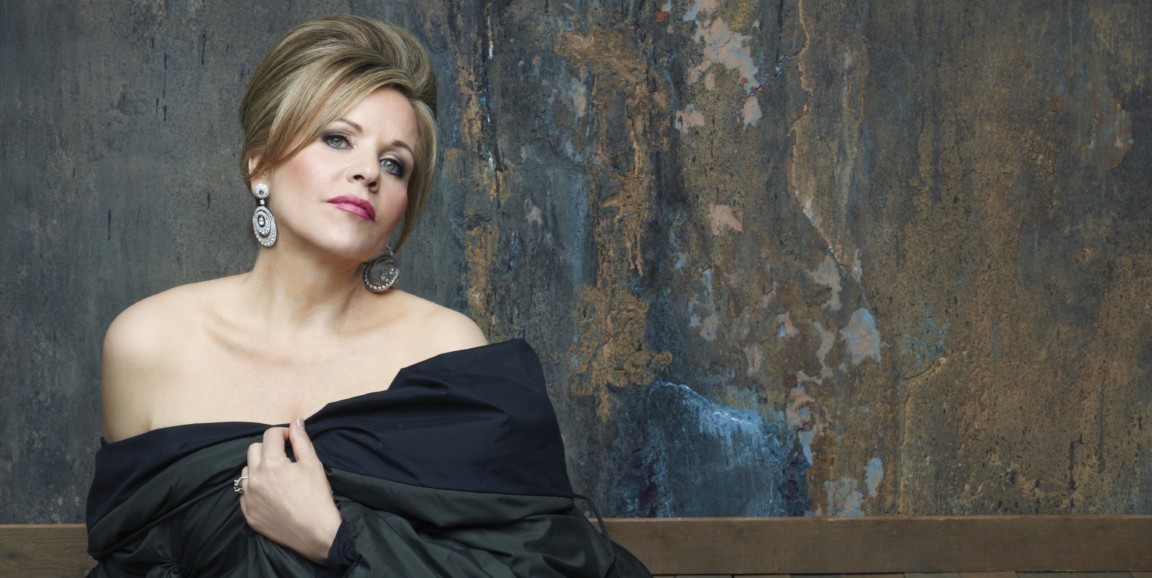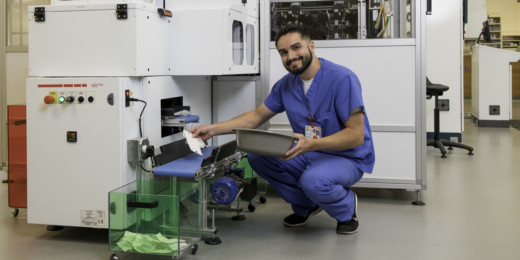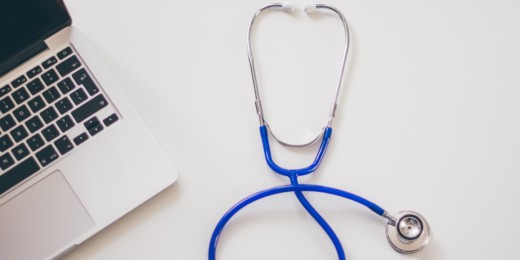About a month before she opens on Broadway in the revival of Rodgers and Hammerstein’s Carousel, Renée Fleming is sitting in a broadcast booth talking to me about neuroscience and music. I'm able to grab time with the celebrated soprano to discuss Sound Health: Music and the Mind, a collaboration between the Kennedy Center, the National Institutes of Health, and the National Endowment for the Arts, before she makes a concert appearance on campus.
Fleming, an artistic advisor at large to the Kennedy Center, tells me she’s always been intrigued by the intersection of music and medicine. “One of the things I learned over the years was that for some inexplicable reason, most doctors are amateur musicians. I’ve always wondered: what is that connection between medicine and music?”
It wasn’t until Fleming attended a Washington dinner party with three Supreme Court justices (Anthony Kennedy, Ruth Bader Ginsburg and the late Antonin Scalia) and a research scientist who heads the NIH (Francis Collins, MD, PhD) that she was able to put her curiosity into a concrete plan. There, as she and Collins conversed over food and music (he played guitar and she sang), the idea for Sound Health emerged.
The core objective of the initiative is to explore the intersection between music, the brain and wellness. As part of the project, Fleming spent two hours in an fMRI, singing, speaking and imagining a tune (“The Water is Wide”), so that researchers could explore how the brain is activated in those three situations.
The night before her Stanford performance, she spoke about this project, as well as her thoughts on music and neuroscience, in a presentation sponsored by the Medicine and the Muse Program and Stanford Live and moderated by Dean Lloyd Minor, MD.
During our conversation we talked about the healing power of music, and I asked whether her voice ever heals her. “That’s an interesting question,” she responded. “I think singing, definitely, and music in general has a huge power over me. When I sing the four last songs of Richard Strauss – which I’ve sung more than anything in my repertoire – in the last piece, I am in a meditative state. My breathing slows down. I can suddenly lift of out of my daily life, and that happens every time. I would say 'yes' is the answer to that.”
What does she hope will come from this unique left brain-right brain collaboration between science and music? She told me: “I would hope that we, as a society, appreciate the arts more and value the arts more. That we understand when the arts come into the community... and rejuvenates it, that’s important. We still think of it as light, soft entertainment. The science can kind of underline and support these concepts.”
Carousel, Fleming’s first ever appearance in a Broadway musical, previews in late February and opens in April. She takes on the role of Nettie Fowler who sings the searing anthem “You'll Never Walk Alone.” That moment alone should heal some hearts.
Photo by Andrew Eccles/Decca




